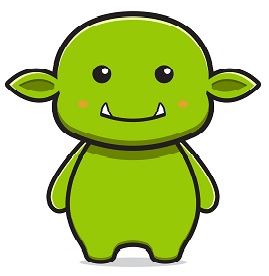I do. The is “el/la” and a is “un/una”.
In my dad’s language and my second language, it’s “the” and “a”
Yes.
English.
I’ve heard of that one. I think the is “the” and a is “a”.
I believe that “a” is either “a” or “an”; it depends.

Funny story. I know an old Chinese man who has a stutter. When he starts a sentence he often repeats the the the the the before he gets going. It sounds like removed removed removed. So far no one has confronted him but I always worry it will happen some day.
A very bad word that we’re not even supposed to say on the internet, believe it or not.
Mandarin:
No “the,” you just say the noun and that’s it.
“A” or any other quantity of a noun is generalized as a number, followed by a character indicating quantity, followed by the noun. “An apple” is 一个苹果 (yi ge ping guo), 一 literally means one, 个 is the character that denotes quantity (it’s the most common one but some nouns have different quantity adjectives), 苹果 is apple. Two is an exception because there’s a special character for it that’s different from the number two (两个苹果 as opposed to 二个苹果), but every other number quantity is the same as the number itself.
I like Chinese as a language
No. (Finnish). I remember watching english speaking social media influencers Dave Cad (UK) and Chachi Gonzales (USA) who both moved to Finland saying that their english have gone worse through the years because they have begun to drop ”the” and ”a/an” in conversations just like many Finns do when they speak english.
No we don’t (Slovak)
o, a, os, as for “the”
um, uma, uns, umas for “a”
both lists mean: singular masculine, singular feminine, plural masculine, plural feminine.
and if the gender is unknown or mixed you use the masculine
Si exista en Español y inglés, son artículos definidos ( el, la, los, las ) y artículos indefinidos ( un, una, unos, unas )
Yes, they exist in Spanish and English, as indefinite articles ( a, an ) and definite articles, which English has one ( the )
Japanese does not to my knowledge have any articles, これは何 could mean what is this or what are these. りんご could be one or more apples.
idk
Yes, we do.
“Il/lo/la/i/gli/le” instead of “the”, the precise article is chosen taking in consideration gender and plurality. We even have elliptic forms with " l’ ," for words starting with a vowel.
Then we have “un/uno/una” instead of “a”. Again elliptic form "un’ " for feminine words starting with a vowel.
Italian here 🤌
No (Lithuanian)
Yes, it’s “le/la” and “un/une” in French
We don’t have either an ‘a’ or a ‘the’, but we have a ‘that’ and it’s ‘o’.
A bird = Kuş => Bir Kuş
If we need to specify that it is singular (like you often do with ‘a’ we say ‘one’ aka ‘bir’ instead)
This language is Turkish, by the way.
People have covered German and French. Esperanto has the genderless “la” for “the”; there is no “a” article. “Here is a house” is “Ĉi tie estas domo,” or “Jen estas domo,” or even simply “Estas domo” depending on what you mean. But there’s no article.











